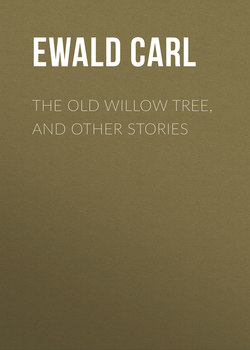Читать книгу The Old Willow Tree, and Other Stories - Ewald Carl - Страница 4
The Old Willow-tree
4
ОглавлениеAfter the warm days came rain and drizzle and wind. The roads became difficult because of the mud and slosh. Only in the avenue did it dry up soon, however hard it had rained. For the poplars gave no shade, so the sun was able to come at once as soon as the rain had ceased. And they gave no shelter either, so the wind came with a rush and dried the puddles.
The squire came driving with his wife. When the carriage reached the place where the willow stood, the wet mud splashed all over her new silk dress.
"Ugh!" she said.
"What's all this nasty mess?" asked the squire.
The keeper, who was sitting on the box beside the coachman, pointed to the willow-tree:
"It's that fellow there," he said. "He was planted by mistake and now he has stood and grown big. He shelters the ground from the wind and shades it from the sun, so there is always a big puddle under him, long after the rest of the avenue is dry."
"Did you ever hear of such a thing?" said the squire. "And the look of him, too! He spoils the whole of the beautiful, stately avenue. See and poll him to-morrow, keeper. Off with the whole of his crown, do you hear?"
For that happened to be his mood that day.
On the next day, they came and sawed the willow-tree down to a man's height. Only the thick naked trunk remained. Not a leaf was-left, except five that stood on a little twig down by the ground and really had no business to be there at all. The whole of the splendid crown lay in the ditch. The keeper chopped all the branches into pieces with his axe.
"Will they become cuttings?" asked the willow, disconsolately.
"They will become faggots," replied the keeper and went on chopping to the last stick.
"Then rather let me die at once," said the willow.
"For the present, you will stay where you are, till the winter is past," said the keeper. "When the snow lies thick and smooth all over the roads, you can do good service as a warning-post against the ditch. What will happen afterwards depends upon the squire."
"That was a fine ending to the cutting-farce," said the oak-tree.
"Poor Willow-Tree!" said the wild rose-bush.
"Thank you," said the willow-tree. "I still feel a little stunned. It is no trifle to lose the whole of one's crown. I don't quite know what's to become of me."
"It's a terrible scandal," said the nearest poplar. "A wholly unprecedented family-scandal. If only they would come and take you away altogether, so that you couldn't stand there and disgrace us like a horrible, withered stick!"
"A family-scandal … a scandal … a scandal," whispered the poplars along the avenue.
"I don't feel at all withered, oddly enough," said the willow-tree. "I don't know either that I have done anything to be ashamed of. I was set up here and I did my best to fill the position. The squire praised me one day and cut me down another. We must take life as it comes. I shall never be a poplar, but I am one of the family for all that. And a family has other qualities, besides pride. So let us see in a year's time what becomes of me."
"He's speaking like a man," said the wild rose-bush.
The oak-tree said nothing. The poplars whispered in their superior way, but talked no more about the family-scandal.
